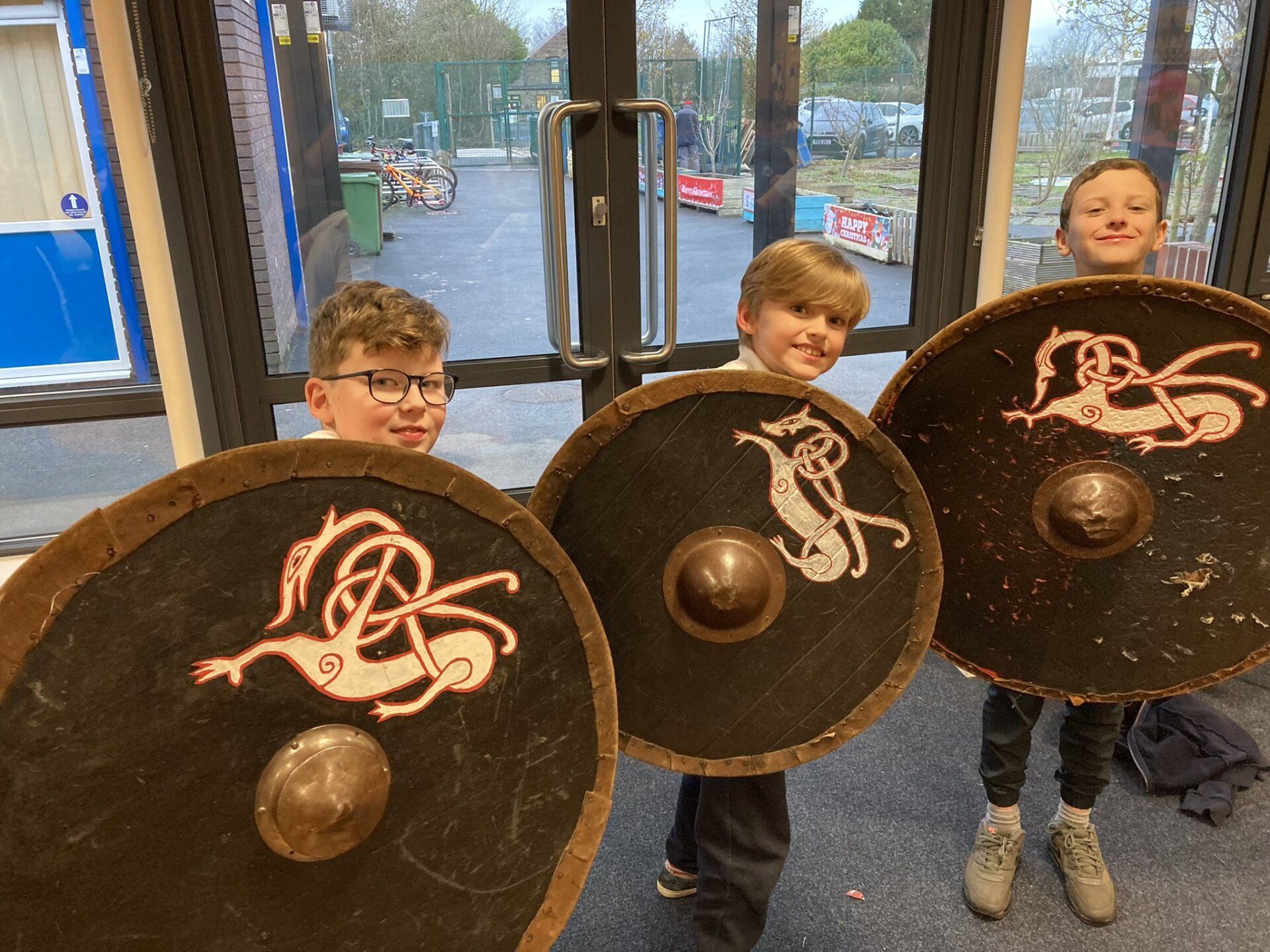History
History Statement of Intent
The teachers of St. James’ Catholic Primary School say…..
History teaches us who we were and the reasons we have become the people we are today. Through teaching a wide and varied curriculum, with links to Science, Geography, Technology, Art and Knowledge and Understanding of the World, History helps the children to develop a coherent knowledge and understanding of Britain’s past and that of the wider world. History teaches children why things are the way they are and what lessons have been and still can be learnt from the past. (For example, war, religion, laws.) Through the teaching of history, children can also grow a sense of appreciation of how children’s lives have changed and how they couldn’t get the things they may have wanted or needed and also how self-sufficient people needed to be to survive.
We are aiming to inspire pupils to develop their curiosity and enquiry skills, building resilience and independence, encouraging and enabling all children to ask questions, make decisions, think critically, debate, sift arguments, discuss, communicate and develop perspective and judgement. Teaching through a more ‘hands-on’ approach to learning helps to encourage the development of personal organisational skills and the children to be historians - through off site visits, handling artefacts and inviting ‘expert’ visitors into school.
Through the teaching of History we endeavour to teach our children to understand and reflect upon the complexity of people’s lives, the process of change, the diversity of societies and the relationships between different groups, as well as their own identity and the challenges of their time. This also helps the children to gain a sense of their own identity within a social, political, cultural and economic background.
The children of St. James’ Catholic Primary School say…..
“I think it is important to learn about how the human race has changed.”
“If you get the right products, it can be really fun learning about and thinking about what it would have been like years ago.”
“History is important because you always need to know key information about the past, for example, in WWII when the Jewish scientist from Germany flew to America and learnt to split the Atom.”
“I like history, because what happened in the past is important to learn about and it is exciting.”
History Long Term Plan
History Skills Progression
History Policy




